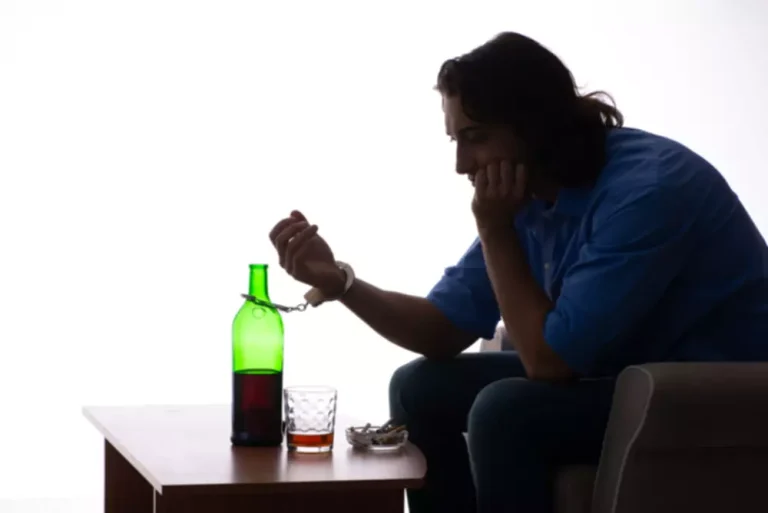
Side effects of alcohol withdrawal may be both physical and psychological in nature. As early as one week after stopping alcohol, you will likely begin to see benefits. The physical symptoms of withdrawal will be past their worst for most people, and the benefits of quitting alcohol will start to be noticeable. Understanding the impact of alcohol on the body, particularly the urinary system, can shed light on why bedwetting may occur. By implementing preventive measures and seeking professional help, individuals can take proactive steps towards managing and stopping bedwetting episodes.

What are the common alcohol withdrawal symptoms from alcohol detox?
Her over 15 years’ experience working in healthcare administration and management quickly launched her into a leadership role. Now serving as the Director of Human Resources since 2018, she leads our organization through the intricate requirements of recordkeeping, recruitment, staff development as well as compliance. Keep in mind that healthy sleep patterns are crucial for any person wanting a high-quality life. There is an estimation that individuals who become addicted to alcohol are 5 to 10 times more likely to suffer from some type of sleeping disorder.
What Happens to Your Body When You Stop Drinking Alcohol
- While lifestyle changes and professional help often go a long way in combating fatigue, it’s imperative to recognize when medical intervention becomes necessary.
- You don’t have to take this journey alone; we are here to help you through each step of the way.
- Addiction Resource aims to provide only the most current, accurate information in regards to addiction and addiction treatment, which means we only reference the most credible sources available.
- It is important to be patient and persistent, as what works for one person may not work for another.
During the first stage of alcohol detox, the body adjusts to being without alcohol after consistent use. Excessive sweating is one of the initial withdrawal symptoms along with insomnia, nausea and tremors as the body physiologically reacts to stopping alcohol consumption. If you or a loved one struggles with alcoholism, don’t try to quit drinking cold turkey at home. With proper treatment, counseling and a strong support system, it is possible to break free from the grips of alcohol addiction and begin recovering your health and wellbeing. Alcohol withdrawal (alcohol withdrawal syndrome) is a range of symptoms that can happen if you stop or significantly reduce alcohol intake after long-term use. Additional contributors that can cause you to experience night sweats include the use of certain prescription drugs, low blood sugar, and other alcohol withdrawal symptoms.
Managing Night Sweats During Alcohol Detox

“Depending on how much and how late you drink, this suppression of ADH can carry into the night—even when you’re sleeping,” says Dr. Dasgupta. “The kidneys don’t reabsorb water, so when you drink, you’re going to make larger amounts of urine,” says Dr. Ulchaker. And that, of course, is troubling enough if you’re sleeping solo, but it’s super embarrassing if you’re not the only one under the sheets.
Symptoms of Alcohol Withdrawal: Timeline and Signs of Danger

Addiction, in general, is a result of mental instability, of which depression and anxiety form big parts. Alcohol recovery body changes are one of the key stumbling blocks on the path to sobriety. In fact, Jude’s leak-proof pants have been designed to absorb up to 8 teaspoons of urine, ensuring you stay dry and confident all night long. We also have a range of comfortable and absorbent bamboo pads that are perfect for those who experience medium leakage.
- Inpatient treatment, which requires staying overnight at a facility, might be safest for those at risk of severe alcohol withdrawal symptoms.
- Factors such as sleep disturbances, changes in diet, mental stress related to sobriety can contribute to this long-term effect.
- Alcohol-related insomnia may last weeks or even months after initial symptoms begin.
- Mark’s goal is to provide a safe environment where distractions are minimized, and treatment is the primary focus for clients and staff alike.
- In more severe cases, inpatient alcohol detox and treatment may be necessary.
The feelings of anxiety are also very natural, given that the body is detoxing, and it takes about two weeks to get all the alcohol out of the system. Here at Jude, we are proud to break the stigmas surrounding the topic of incontinence. In this article, we’ll give you 10 helpful management alcohol detox side effects tips to ensure you stay dry and feel confident during your night out. You can reduce the risk of bedwetting by simply using the bathroom more often. There is no real way to eliminate the risk of uncontrolled urination, though. It remains unclear what precisely triggers alcohol withdrawal delirium, but research shows that it’s related to ethanol’s effect on receptors in the brain and central nervous system.

Complete the form below and we will complete your insurance verification https://ecosoberhouse.com/ and get back with you shortly. You, nor your loved one, are under any obligation to commit to a Legacy Healing Center treatment program when calling the helpline. However, there are ways that you can help reduce its intensity and the discomfort it may cause.
And even though it will be difficult to deal with, addressing the problem head-on is a necessity. And once again, recovering from alcohol is one of the most intense experiences compared to other drugs. As mentioned earlier, neurotransmitters are neutralized at the “pleasure center” part of the brain.
When you’re sober, ADH’s job is to prevent the production of urine—it tells your kidneys to conserve water, so you are not peeing out all of your body’s stash. “I was feeling great having got over the nausea, shaking etc. within the first week ,but now I am beginning to have what I can only describe as partial withdrawals all over again.” “I could easily sleep 12 hours a night and still feel tired the next morning.” “Lightheaded, dizzy, no sleep, pale, weak, and it feels like electric shocks shoot through my body every so often. Crazy anxiety.” “The more time that goes by, the clearer the picture becomes. I see my triggers, and I work through them. I’m always thirsty and drink a lot of water. I’m still not sleeping through the night.” But once you fall into slumber, it can wake you up repeatedly in the night.
It is crucial to approach this issue with patience, understanding, and a commitment to finding personalized solutions. With the right strategies and support, individuals can regain control and minimize the impact of bedwetting on their overall well-being. If you’re continuing to suffer physical symptoms after two weeks of abstinence from alcohol, consult your healthcare provider. If you’re a heavy drinker, your body may rebel at first if you cut off all alcohol. You could break out in cold sweats or have a racing pulse, nausea, vomiting, shaky hands, and intense anxiety. Some people even have seizures or see things that aren’t there (hallucinations).











